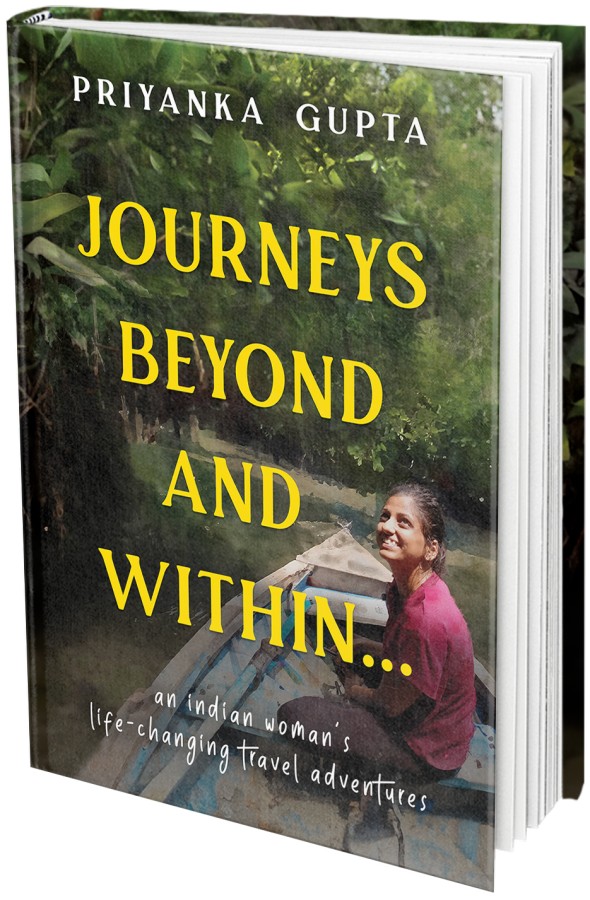After an hour or two of the daily evening walk, I tell myself I should go home and read. But sometimes, I want to keep walking with my friend. I want to sleep at 4 am after Netflixing zombie movies back to back. I want to wake up late and then write and let the day design its schedule.
But during those zombie movies, I keep looking at the watch. The MacBook throws the low-battery warning, but I don’t plug in the charger as I want the computer to sleep its natural course. And then we can sleep too. But then we stay awake some more and talk about our lives.
As every hour passes by, I realize that my waking up time is getting shifted by one hour and that I had to sleep early and start the next day with a fresh run in the morning. But I continue the conversation as that was what I wanted to do at that moment.
And the next day, when I start writing at 11, I brood over the valuable time that I lost by getting up late.
Also Read: How to Make a Schedule – To Live and Work Better
Why can’t we do what we want to do when we want to do it?
Why do we think about the future — the most uncertain and unpredictable — and not about now? Why do we follow so many small daily habits?
What do we want out of life?
Why do we wait for Sundays for lunch with our family?
Why do we make a house and live in it and go to the office and come back to do the same all over again?
How do we choose between ambition and happiness?
All successful people work hard. But is the whole process enjoyable? If not, what are they working towards? Eventually, they give all their earnings to charities. Clearly, money was not the reason (at least not for all of them). They make the Amor Fati, suffering in the language of the German Philosopher Nietzsche, an integral part of their lives.
Elon Musk stayed in office for forty-eight straight hours when he launched X.Com (now Paypal) to make sure everything worked. Not all of those continuous forty-eight hours would have been enjoyable.
But in spite of all the hard work, all these successful people are inspired and determined and focused.
Why have they made such choices that make them live their entire lives through endless challenges? Why don’t they focus on enjoying each moment?
Everyone says live in the present. Enjoy the present. But they also say, do what you are supposed to do.
Why don’t we indulge in momentary pleasures instead of delaying them to do what we are supposed to do?
Relevant Read: Relearning The Most Important Principles of Life– With The Little Prince of Antoine de Saint-Exupéry
I delve into philosophy to answer these questions. After all, Will Durant said, “Philosophy must provide a synthesis for wisdom.”
Though declared mad, the German Philosopher Friedrich Nietzsche left us with some of the most thought-provoking philosophies of the nineteenth century.
Nietzsche’s madness could be summed up in his own words, “Perhaps I know best why man is the only animal that laughs: he alone suffers so excruciatingly that he was compelled to invent laughter.”
Everything he said haven’t, yet, made sense. Will Durant said he died an early death and did not live to see fallacies in his arguments. But the world philosophers also concluded that Nietzsche’s book Thus Spoke Zarathustra was one of the best books of the time.
Because Nietzsche offers us not only a philosophy but a new hope and a new goal for the whole of humanity and each one of us.
As per Nietzsche, the goal of humanity is to evolve into its better version. The goal of all of us is to surpass ourselves. The purpose is not to be happy all the time and enjoy all the time and suffer no suffering. The purpose is to become who we think we are and to accept suffering as a part of this journey.
Suggested Read: What is the Meaning of Life
Strongly against nihilism, Nietzsche said that we should believe in willpower, goals, ambition — all of which lead to creation. And this will of creation should be so strong that it undermines everything else.
Some people want to read thirty books a year. To be able to do that, some nights they might have to oppose the inertia of continuing watching the TV and instead read. When they start reading, they enjoy, but the initiation might not have been effortless.
Life is divided into such moments of impulse and conscious decisions, moments of immediate and impending pleasures.
When we let the will of creation overpower us, it makes us mindful in these moments. All these present moments would aggregate and bring us closer to where we think we should be or who we should become, which, in turn, would make us happy and satisfy us on a long run.
As soon as we start accepting the suffering that comes as part of this will and work, our mind would also relax.
Thousands of words I write won’t reach anyone. It would take me hours and days and months and years of ass-numbing struggle in a plastic chair in my room, in the company of a switched-off phone, minimal materialistic pleasures, and rejections from publications.
All of this for what? To keep moving towards the meaningful life I have designed in my head for myself.
Everyone’s reasons are different. Some of us want to run marathons. Some of us want to be the best coders. Some of us want to hike up Kilimanjaro. Some of us want to be the best fathers.
We all regulate our lives to achieve what we want to achieve. And it is okay — because we are moving towards a version of ourselves and our surroundings which is more meaningful to us, which we think is meant for us.
You cannot avoid some suffering on this journey. That was never the goal.
If Benjamin Franklin, Martin Luther King, Mahatma Gandhi, Einstein, Nelson Mandela, Steve Jobs had all spend their lives in momentary pleasures without going through any struggles, the world would have been devoid of electricity, peace, independence, democracy, energy, and baffling technology.
You might have already chosen a path — your purpose, your desire.
Remember — Your willpower is your boat over the river of your life. It keeps you afloat. You have to keep steering in the direction of your purpose. You need to engage in the right activity at the right time. But designing the right activity and its right time is in your hands.
Let us adapt to Nietzsche’s formula — surpass ourselves to become our better future version — whatever that is for each one of us. Let us be independent, carve our path, work towards our ambitions, and accept some pain as part of life to achieve great ambitions. Enjoyment would come and go as we progress in this journey, but it is not the only important component.
Let us find out what is important for us to become who we want to be.
Let us all remember Nietzsche — the madman — and agree that instead of retiring on the steps that we just climbed, we have to keep climbing.
That is the only ambition. That is the only goal.
How do you choose between ambition and happiness?
*****
My much-awaited travel memoir
Journeys Beyond and Within…
is here!
In my usual self-deprecating, vivid narrative style (that you love so much, ahem), I have put out my most unusual and challenging adventures. Embarrassingly honest, witty, and introspective, the book will entertain you if not also inspire you to travel, rediscover home, and leap over the boundaries.
Grab your copy now!
Ebook, paperback, and hardcase available on Amazon worldwide. Make some ice tea and get reading 🙂
*****
*****
Want similar inspiration and ideas in your inbox? Subscribe to my free weekly newsletter "Looking Inwards"!



Great article. About the point regarding rejections from publishers, why don’t you try self publishing? It gives more returns, you can hire an editor, and you’d need to understanding the marketing using Amazon Kindle’s algorithm, but it would be a better way than traditional publishing imho
This was a question that I have been asking myself for so long, since I learned about existentialism. I misunderstood it in the way that the fact that I exist in this moment is the greatest thing and everything else is mortal and I am mortal. I concluded that I should live in the moment but it just didn’t feel right, to live without a long term vision in your head. I really needed to read your words. Thank you.
Loved it! You surpassed yourself with this article. Certainly got me thinking about my days. Learned a new phrase too, Amor fati. Thank you. Love the artwork in this post as well. 🙂
Thanks for reading and for the lovely comment Thea. I am glad you liked the post and it gave you something to think about. Please keep reading. Love,
Priyanka
Nietzsche wasn’t interested in who we want to be but rather who/what we might become if we give ourselves over to our driving (and often contrary/clashing) passions/interests, this couldn’t be further from the sorts of myths around self-fulfillment we peddle about tech founders and the like, not the sort of thing one could plan/engineer/manage let alone institutionalize.
Thanks for reading. I agree. It is nothing we can plan or institutionalize. By becoming who we want to be, I mean to signify that you let your willpower drive you – as you also said. And then you become who you are or who you would have wanted to be given that you gave yourself to this will power. Stay connected 🙂
>I want to sleep at 4 am after Netflixing zombie movies back to back.
don’t we all 😀
haha. yes. That got me thinking. 🙂